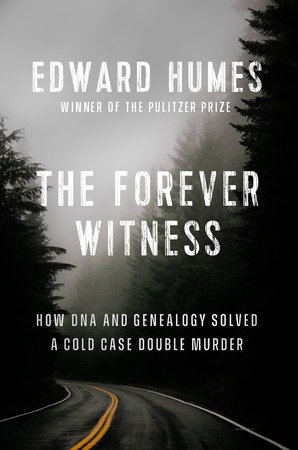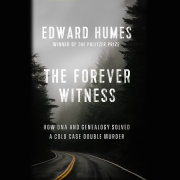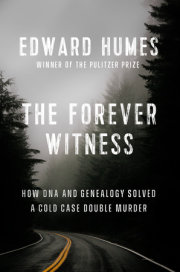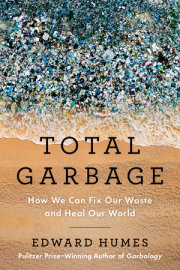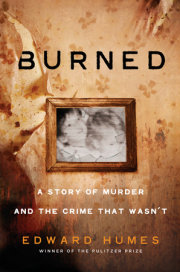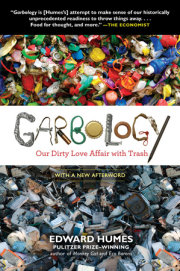PART I
We'll Be Back Tomorrow Night
If ever there was time, I would lie in the sands of Gonzales and wiggle my toes in the sun. So leave me not forever, and keep love in your soul.
-Tanya Van Cuylenborg,
from the last entry in her notebook
We were only eighteen. We were kids. We felt invincible. But you grow up fast when your best friend is kidnapped and murdered.
-May Robson
1
If Only . . .
November 17, 1987
Vancouver Island, British Columbia, Canada
"Why don't you come with us?" Tanya Van Cuylenborg grinned, picturing the look on her best friend's face.
"What, me?" May Robson sputtered. "Jump in the car and drive to Seattle tomorrow, just like that?"
"Nope," Tanya said. After a beat, she added, "We're going in Jay's dad's van."
This last-minute trip to Seattle was actually her boyfriend's idea, she told May. And, okay, yes, she admitted, she was feeling a little nervous about it, this first extended trip alone with Jay Cook. So Tanya was doing what any eighteen-year-old almost-adult would do in such a situation: she asked her girlfriend to come along.
But May had gone quiet.
"C'mon, Mary-Anne," Tanya implored, emphasizing each syllable of May's proper first name. "You need a little adventure."
"So true," May muttered grumpily.
Tanya held her breath. Impulsive last-minute trips abroad were not May's thing. That was Tanya's role in this friendship. But once persuaded to jump in, Tanya knew, no one had her back better than May.
"Please come," Tanya pressed. "We're going to be sleeping in his dad's van and I'll be uncomfortable alone with Jay. It'll be so much easier with you there. It'll be fun."
Normally, Tanya could expect May to agree then, no further discussion needed. The two had done everything together, after all, ever since they bonded at a Brownie troop meeting when they were eight. They'd become a constant presence at each other's homes and tables ever since. May considered Tanya's dad, Bill, a second, funnier father. The best friends graduated from high school together, ate and drank their way through London and Paris on a school trip that spring together, bluffed their underage selves into bars together. Tanya relished making it her personal mission to coax her more conventional friend into impetuous day trips and expeditions. She couldn't remember May ever expressing regret at going along for the ride, not even when they got hopelessly lost in France late one evening. Tanya kept a cool head that night for May's sake, and they finally found their way back to their hotel, arm in arm.
This time, though, May said she'd have to disappoint her friend: she was sick. The pressure of the hard plastic telephone was making her relentless earache worse, she told Tanya. She had a pounding headache, fever, and chills. She wanted to say yes, but as much as she loved to be spontaneous with her best friend, and as much as she hated to say no when Tanya played the girlfriend-in-need card, May said she wasn't going anywhere anytime soon. Certainly not the next day.
"I'm sorry, sweetie. I'd be miserable, and I'd make the both of you miserable. I need to stay home in bed."
Tanya grumbled a bit, then mastered her disappointment, straining to sound both sincere and sympathetic when she said that, of course, she understood. Everything would be fine in Seattle, she assured May. They both knew Jay was a great guy, that she'd be fine without May playing third wheel. She was just being silly.
In truth, she said, the impetus for the trip hadn't been fun and adventure but a request from Jay's dad, Gordon Cook. He needed a replacement furnace for a customer of his heating service and repair business. His regular supplier in Vancouver on the mainland had fallen through, but a company in Seattle had the right furnace and fittings. He just needed someone to make the five-hour car and ferry trip to pick up the old-style oil burner and haul it back.
Normally Gordon's business partner, Spud Talbot, would do it. When a trip to Seattle was needed, Spud would depart on a Friday and bring his wife. They'd make a weekend getaway of it, then return with the parts on the following Monday. But this job couldn't wait for the weekend-winter had come and the customer needed a working furnace as soon as possible.
So Jay volunteered to handle it, then asked Tanya to join him. His dad had given him money for a hotel, but Jay wanted to pocket the cash and spend the night in the family van, parked outside the supply warehouse. He and Tanya could pick up the furnace first thing in the morning, then there'd be time and money for some sightseeing and shopping before returning to Vancouver Island. They'd arrive back home that evening, Tanya explained.
"I'll talk to you then," Tanya and May said at the same time. The two friends laughed their good-nights before hanging up.
May Robson would replay that phone call in her mind time and again over the days, years, and decades to come. Sometimes she would dream about it. Thirty-plus years later, she still remembers her last conversation with Tanya with the sort of clarity normally reserved for a favorite song or a beloved movie replayed more times than can be counted. The warmth of her friendÕs voice still rings in her ears, the laugh she knew better than her own, the easy intimacy with the one person she could and did tell everything. Except, on that last day, she told her friend no. After all this time, May still cannot speak of that without squeezing her eyes shut.
In her dream version of that conversation, May usually gives a different answer. She sees herself happily packing a bag with her mom's help, then waiting for Tanya to swing by with Jay at the wheel of his hulking copper-colored family van.
If only that dream version were true, May often thinks, everything might have been different. Two people headed to Seattle had been an easy target for a predator, she reasons. But had she gone along, had she been in that van during that trip, three might have been a crowd, and the predator might have moved on in search of easier prey. There's a chance nothing would have happened if she just had gone along for the ride, a chance Tanya would have come home as planned.
The dream, which she has had many times, evokes in May's imagination the life that might have been: Her kids would be in school with Tanya's. She and Tanya would call each other on the phone every day. Tanya would still be talking her into crazy, impulsive adventures. She had no doubt their friendship was one of those special ones that would have endured longer than anything else in their lives.
Of course, every dream has its nightmare alternative: May could have gone to Seattle with Tanya and Jay and shared their fate. A seasoned predator might not have been deterred by one additional teenaged girl. Another young woman in the van might have provided even more inducement for the killer to strike.
It's not that May hasn't thought about that chilling alternative outcome: it would have been horrible, she knows. May has lived a good life since then, and, all these years later, she is glad she chose to stay home, glad she chose life and a family and a future, even if she had not known she was choosing them at the time. But the part of her that she usually keeps to herself knows if only she had said yes to Tanya, one way or the other she would have been spared a lifetime of grief, survivor's guilt, and regret.
Copyright © 2022 by Edward Humes. All rights reserved. No part of this excerpt may be reproduced or reprinted without permission in writing from the publisher.

